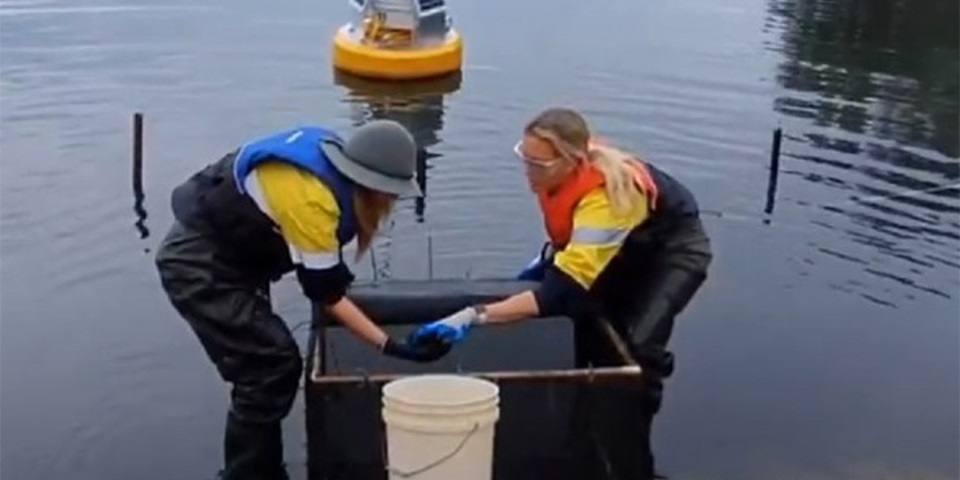Threatened freshwater mussels return home
Areas of research
Habitat rehab
Technology utilised
Valvometers

One hundred and sixty threatened Carter’s Freshwater Mussels have been safely relocated to the Vasse River after their health and habitat were temporarily compromised by a new bridge development in Busselton City.
Freshwater mussels play an important role in maintaining our aquatic ecosystems, especially in the south-west region of Western Australia, by filtering water and creating liveable habitats for fish and other aquatic creatures. This is especially true in WA’s Vasse River.
The City of Busselton engaged the Harry Butler Institute soon after they identified the new Vasse River road bridge could potentially impact the safety of the local mussel population’s habitat.
A careful plan was developed to temporarily relocate, house and conserve the mussels at the Iluka Capel Wetlands, while the bridge construction took place. The mussels were remotely monitored using bio-monitoring devices, called ‘valvometers’, developed by Dr Alan Cottingham to detect any early signs of possible stress.
The project has been a collaborative effort across the board from partnering with Iluka Resources Limited to identify a suitable host wetland at the Capel rehabilitation site, through to working with Ottelia Ecology to undertake the relocation and on-ground monitoring.
All the mussels survived the relocation period. Each individual mussel was tagged before being returned to appropriate habitats around the new bridge site in the Vasse River, where they resumed their role of filtering the water. Ten mussels now remain at the Capel rehabilitation site to be studied over the next year to help guide future monitoring practices.
Areas of research
Habitat rehab
Technology utilised
Valvometers
